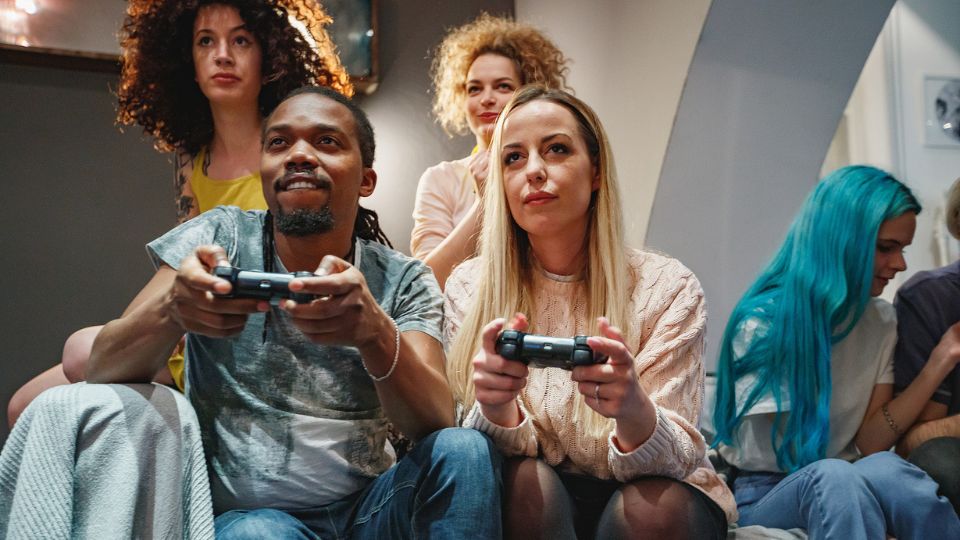Millions of game consoles and game computers are manufactured outside the United States. Despite the suspension of reciprocal tariffs on most trading partners announced on Wednesday, President Donald Trump may still go ahead with his planned levies. He claims it's time for the country to get rich again - which most economists consider a simplistic and short-sighted statement.
"It's a really, really big deal at the moment," says Christopher Dring, editor-in-chief of trade publication The Game Business. "I see it almost as a threat to the industry as we know it. You've got components from all over the world - most of them coming from Asian countries and most of them facing huge tariffs. So these products could become extremely expensive in the US."
However, it is not just hardware such as consoles and computers that could suffer. Some console manufacturers, such as the Japanese company Nintendo, play a large role in the promotion and development of games. Dring says tariffs could hurt profit margins and reduce companies' willingness to invest in new products.
"You get into a strange cycle where companies play it safe out of fear," he explains. "They focus on what they do well instead of trying new things. But it's the new ideas that make the market bigger. So you get into a situation where they keep producing the same things, and you get into a downward spiral."
Already now there are signs of trouble. Nintendo announced last week that pre-sales for the Switch 2 console will begin in early May. It put that plan on hold when Trump announced the latest tariffs, and said it wanted to assess what impact they might have on its products. However, the company still intends to unveil the Switch 2 on its original launch date of June 5.
The shake-up in the industry comes less than a year after the release of Black Myth: Wukong. According to developer Game Science, it sold more than 10 million units in just three days, making "Black Myth" one of the fastest-selling titles ever.
The game is based on a Chinese book written 400 years ago, yet it has become a hit around the world. Researchers say its success proves that games are much more than just a hobby.
"Games have an incredible power to connect people across cultures," says Dr Timothy Peacock, Director of the Games Lab at the University of Glasgow. "They make you feel like you're inside the story. You learn skills. You face moral challenges. You experience growth. And that's something that helps create this deeper engagement. And all of that fuels global conversations that bring people together."
But there may be fewer such conversations if the gaming industry takes a hit.
"It's already hard to be successful in video games," Dring says. "Now it's going to be even harder, and you have to wonder if investors and game companies will try to build another project like 'Black Myth. There's a fear that they won't take that risk."
CMG/gnews.cz-jav



